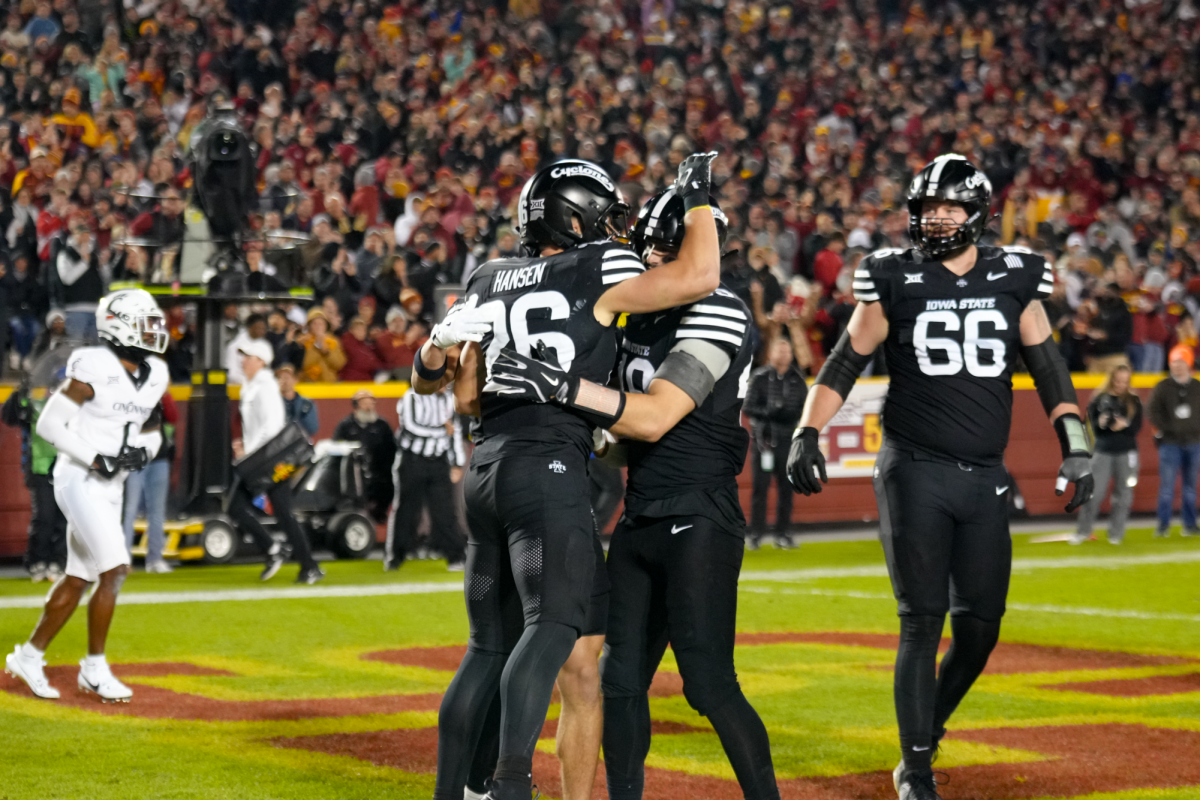COLUMN: Varying lingo of those down under
January 15, 2003
What would you think happened if I told you that I got banged up? Would you ask if I had fallen off my bike? But what if you heard about a woman who got banged up? It can mean something very different. Maybe she’s “in the family way” or “up the duff.” That last one means the same thing, you just don’t know it. That’s the power of slang.
The danger is when one packs up and moves, for example, halfway around the world. I plan to spend spring semester in Australia. These people speak English but with an accent I hope you can imagine (I can’t convey it on this page; think “Crocodile Hunter”) and with slang of which I hope you will understand after reading this article.
You’re out at a simple Australian restaurant with some of those who speak with the aforementioned accent and slang. Maybe you’re worried about something and you hear, “Bob’s your uncle.” Now, if you do have an Uncle Bob, you wonder why someone would mention him.
All the Aussie is trying to tell you though, is that everything’s okay. Uncle Bob or no, it would probably just be easiest to assume the speaker is a loony. Or as the Aussie would say, “He has kangaroos in the top paddock.” You know, he’s “mad as a two bob watch.”
Of course, you’re going to be greatly outnumbered down under. You’re the lone “septic tank.” Pay attention, this gets interesting. Think rhyming slang. Septic tank rhymes with yank. It means American. Not all rhyming slang is quite so easy to track. I still can’t figure out why anyone would order “dead horse” with their burger and “chips.” Dead horse does not rhyme with ketchup, or even catsup.
After the burger and fries, or maybe even at the same time, you might want a nice cold one. Your Aussie companion orders a “coldie,” the “amber fluid.” A small bottle of the stuff is a “stubbie” while a can is a “tinnie.” Some of these just sound like the personalized language of a toddler. If you plan an excursion, you can pack these into an “eskie,” or ice chest. Then again he might order a “pot.” You might be thinking that they really decriminalized marijuana until you see that it’s just a glass of beer. This is also called a “mini” or a “schooner” depending on what Australian state you visit.
Of course, you want to watch how much you drink. In Australia, you might “luck out;” that is to run out of luck, not get lucky, and end up “chucking” or “chundering” all over an Aussie’s kicks. Have you ever thrown up on someone’s shoes? It would probably leave you about as “happy as a bastard on Father’s Day.”
Just hope that the wearer of the bespattered shoes doesn’t “chuck a wobbly” or throw a fit. You just need some water and a good night’s rest. For breakfast, I would recommend scrambling some “googs.” Just don’t think about how filthy the “chooks” were that laid them. After your eggs, throw on some “trackie daks” and take it easy for a few hours. Just sit around in your sweatpants. That word is just a play off of “daks,” trousers.
There are a few terms that could cause trouble for certain members of the college community if they were to visit down under. If a Pi Kappa Alpha member were to call himself a piker, an Aussie would think this man was the type to break his promises. It would also be important to distinguish between a U.N.I. student, located comfortably in Cedar Falls, and someone who goes to a “uni,” which could be any university.
Of course, I am getting all of this slang out of a brief dictionary put out by the Australian Education Office. That doesn’t mean it gets used. In fact, a blue-eyed girl from Melbourne told me she had never heard several of them. It could be a bad idea to put them into usage.
I would recommend just trying to listen. As a matter of fact, that might be a good idea even if you’re not traveling outside of your country. So just “bite your bum,” be quiet and you might be so lucky as to not appear to be a “drongo,” a “dill” or a “ning-nong.” That is to say an idiot. They might hear you give it a “burl” (Americans would say a whirl) with these new words and just decide that you’re “a few snags short of a barbie,” “a few sangers short of a picnic” (those are sandwiches) or a few crayons short of a full box.
Even if they do know what you’re saying, they might not like that you “nicked” some of their lingo. When you do speak it, maybe just be genuine, “dinki-di.”
Nathan Galloway is a senior in biologyfrom Sheridan, Wyo.






